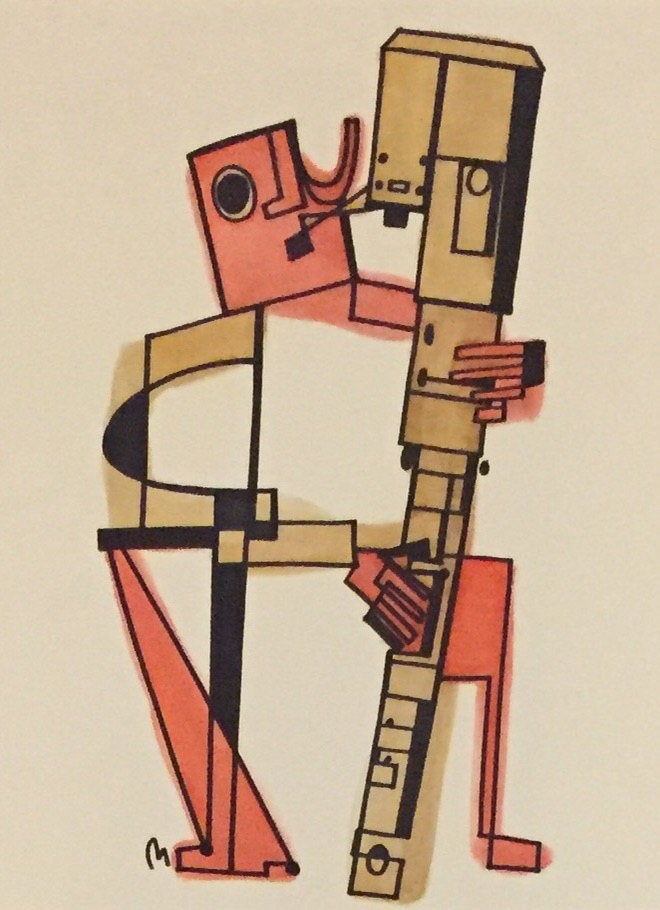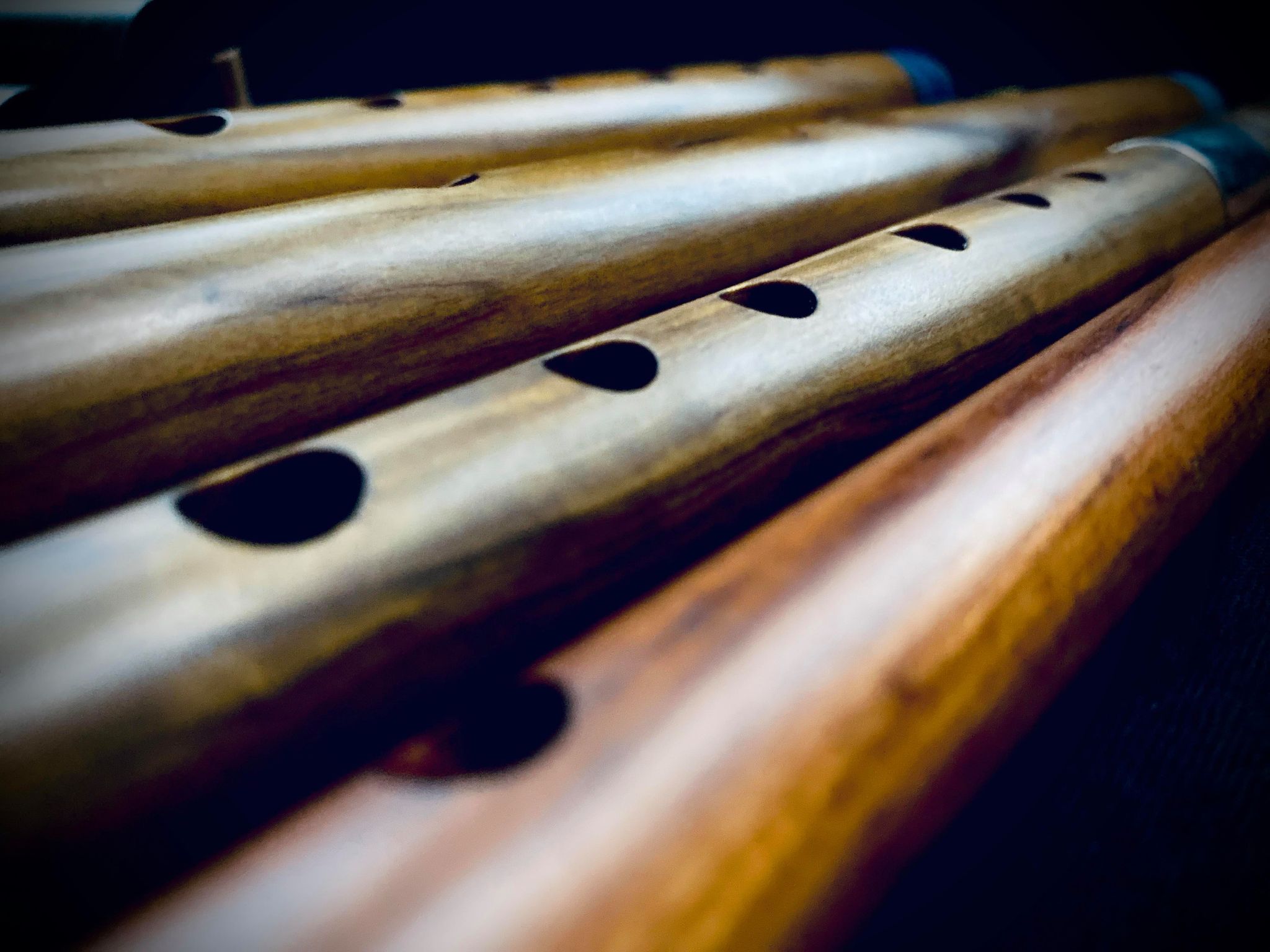Stop Fighting Your Instrument
Sax, recorder, flute specialist. 20 years playing, 11 teaching. I show you how your body is the instrument.

I believe music education should nurture complete musicians: artists who possess both technical mastery and creative freedom, who understand historical traditions whilst forging their own artistic voices, and who move fluidly between improvisation and interpretation. Rather than training students to reproduce a canon, I develop independent musicians capable of asking questions, taking risks, and creating meaningful musical experiences.
Baroque, Renaissance, and Modern Flute
I teach across the flute family: modern concert flute, baroque flute, and renaissance flutes. Each instrument has its own logic, its own voice, its own technical demands.
Understanding historical performance practice isn't about being a purist. It's about knowing why composers wrote what they wrote, how the instrument shaped the music, and how you can use that knowledge even on modern instruments.
I work with students on ornamentation, historical articulation styles, and developing the kind of sound that makes early music come alive. Whether you're preparing for baroque ensemble work, exploring renaissance consort playing, or just curious about how these instruments work, I'll show you how technique and historical understanding inform each other.
Integration Across Boundaries
Music exists in conversation across time, geography, and genre. My work refuses artificial boundaries between early music and contemporary practice, between Western and non-Western traditions, between 'art music' and folk forms.
Creativity and Experimentation
Conservatory culture often prioritises perfection over exploration, creating environments where students fear mistakes and avoid risks. This is antithetical to artistic development.
In my teaching, the practice room becomes a laboratory. You're encouraged to experiment with extended techniques, cross-genre interpretation, composition, arrangement, and collaborative projects.
I do not encourage mistakes, but I refuse to cultivate fear of them. Growth happens at the edge of our comfort zones, and you must feel safe to explore those edges.
In Practice
Lesson Structure
Lessons typically include:
Technical work (scales, patterns, articulation studies) connected to modal frameworks and harmonic understanding
Repertoire study spanning medieval to contemporary periods, with emphasis on stylistic diversity
Listening and analysis
Compositional or arrangement projects
Discussion of historical context, performance practice, and interpretative choices
Become Independent
My goal is simple: teach you to learn without me.
You'll develop the ability to diagnose your own problems, fix your own technique, and keep growing long after our lessons end. I teach you how to practise effectively, how to research performance practice questions, how to analyse music, and how to develop your own projects and musical interests.
I'm not interested in students who depend on me forever. I'm interested in students who outgrow me.
Who I Work With
My approach works best for students who:
Are curious and willing to question conventions
Want to develop improvisational skills alongside interpretative abilities
Are interested in music beyond a narrow canon
Seek to develop their own artistic voice rather than simply replicate others
Are comfortable with experimentation and uncertainty
Value creativity and expression alongside technical excellence
Beginners who want to start with good habits. Intermediate players stuck on a plateau. Advanced musicians looking to deepen their sound and explore improvisation or historical performance. Anyone curious about early instruments, organology, or the connection between voice and wind playing.
Students at any level can benefit from this approach. Whether you're an intermediate player looking to broaden your musical horizons or an advanced musician seeking to deepen your artistry, I tailor my teaching to meet you where you are and support where you want to go.
If you're willing to think about your instrument differently, we'll get along fine.
What Makes This Distinctive
Much training focuses on reproducing established works to exacting standards, preparing students for orchestral auditions or competition success. Whilst technical excellence matters, this narrow focus often produces musicians who are skilled but creatively limited, who can play brilliantly but struggle to find their own voices or adapt to diverse musical contexts.
My teaching prepares complete musicians: technically accomplished, historically informed, creatively confident, and adaptable. You leave with not only strong performance skills but also the ability to improvise, compose, collaborate across genres, and engage critically with musical traditions. You understand music as a living, evolving practice rather than a museum of masterworks to be preserved unchanged.
This approach reflects my belief that music education should serve students' artistic fulfilment and prepare them for sustainable, meaningful careers in an ever-changing musical landscape.
Want to find out more? My Virtual Studio gives resources and an overview of topics I teach.
No man can reveal to you aught but that which already lies half asleep in the dawning of your knowledge.
The teacher who walks in the shadow of the temple, among his followers, gives not of his wisdom but rather of his faith and his lovingness. If he is indeed wise he does not bid you enter the house of his wisdom, but rather leads you to the threshold of your own mind.
The astronomer may speak to you of his understanding of space, but he cannot give you his understanding. The musician may sing to you of the rhythm which is in all space, but he cannot give you the ear which arrests the rhythm nor the voice that echoes it. And he who is versed in the science of numbers can tell of the regions of weight and measure, but he cannot conduct you thither. For the vision of one man lends not its wings to another man.
Kahlil Gibran
